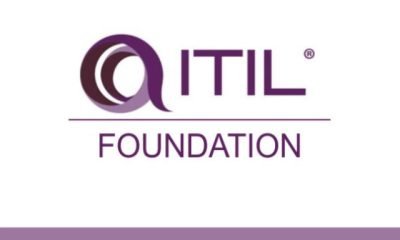Growth
4 Ways of Learning New Skills


Developing and learning new skills requires lots of focus and dedication. Once you start learning skills, you can’t give up no matter how hard it is because once you give up, you will never learn something new and end up living a boring life with a lousy routine. When you start something new or learn something new, you will have some uncomfortable feelings, but as time goes by, you will learn it. There are many ways to learn new skills, and a few of them are listed below.
1. Keep Constant Change
Learning new skills isn’t as easy as we imagine. We have to go through the whole process of self-development and self-improvement. Whether you are learning new skills or doing something that you have never done before, you need to change yourself take yourself out of the comfort zone, which sometimes can cause discomfort while doing and learning something new. If you want to learn new skills, you need constant changes in yourself. Let’s say you are planning to read at least one novel every week, but to complete reading the novel entirely, you have to change your daily routine.
You have to take time out of your busy schedules and give a few minutes or at least half an hour to read the novel. By changing your schedule, you will able to give more time in reading the novel. The same goes for skills. If you take time out to learn new skills, you will learn something new. Constant changes are a must.
2. Be Self-Disciplined
You might cheat or lie to others if necessary, but you can’t cheat on yourself or lie to yourself. The most important way to learn new skills is to be self-disciplined, not for others but for yourself, because you have to be true to yourself in whatever you do. For learning new skills, once you develop a specific routine, you need to stick to it even if there are many challenges in following that routine.
What’s more, even if you don’t have a certain routine or routine that includes self-development, you need to develop/write a perfect schedule for learning new skills. Give a bit of timing to everything you want to do in a day. From watching your favorite drama to completing your homework or work, everything needs to be planned.
3. Learn Different Skills
If you want to learn something new or develop new skills, you can’t just stick to one skill. It’s good to stick and focus on one thing, but if you want to learn something new, then, of course, you need to learn different skills. For example, if you are planning to get a university degree by the end of the, then you need to have some skills and knowledge outside the university books.
You need to enroll in different courses like TAFE courses, digital marketing, HR operations, etc., according to your field to learn new skills. It’s always better to have knowledge about distinct areas of your niche. If you think you can’t do it, then start slow, but once you get a grip on learning different skills together, keep going.
4. Learn Theoretically And Practically
Theory education is one of the hardest yet easy education if you learn it, but to develop new skills, you need theoretical as well as practical knowledge not only in one area but also in various aspects as well as area. If you learn something theoretically, you will remember bits of it, but when you learn something practical, its image will stay in your mind. People learn quickly when they learn something practically.
As for learning new skills, you can’t only be practical, but theories also play an essential part in it. Whether it is learning a new sport, dance, song, etc., you need to learn it theoretically first, but after that, you need to put that theory into practical practice. Learning new skills is like a piece of cake, so you must master them while enjoying it too.
Final Words
These are four ways to learn new skills. If you implement these ways in your daily life, you will be able to learn new skills without any overwhelming feelings.


Growth
How Can You Become Wiser by Understanding the Wisdom in Contradiction?


Meditation is beneficial for both the body and the mind. Many studies have established its role in bringing about various health benefits, including improved memory, mental quickness, boosting the immune system, and reducing cellular inflammation.
Besides its mental and physical benefits, meditating also helps in the process of becoming wiser by empowering you to identify wisdom in contradictions. Life is full of them, and what you generally perceive as the truth may be false.
The best way to gain deeper insights into this topic is by taking online meditation classes consisting of step-by-step instructions from an experienced meditation coach who will help you grasp the contradictions of life and how to overcome them.
But what are some things you can expect to learn from lessons on this topic? Read on to find out.
What Are Contra-Wisdoms?
For example, up might sometimes be down, light could be dark, and good may be harmful in disguise. However, when you understand and embrace these differences, you achieve connection rather than perfection.
Sounds confusing? The way out is to learn the art of seeking connection over perfection since the latter always brings disconnection, leading to a state of mental and physical unrest within yourself.
What Lessons Does a Session Consist Of?
You can learn to seek wisdom in contradiction through eight lessons, each focusing on a different aspect of it.
The lessons are:
- Preparing your consciousness.
- Seeking connection.
- Giving what you receive.
- Perceiving your brain.
- Relationship between suffering and freedom.
- Doing nothing.
- Losing your values.
- Being a lifelong student.
Here is a look at some to give you some idea about what you might expect.
Preparing your consciousness
It focuses on helping you tune in to the state of being and consciousness rather than the things you want to do. It is essential to focus on the consciousness rather than the content.
Your physical presence has the most impact rather than anything else. It’s also about creating an inner shift in which you feel good about yourself rather than wait for someone else to do that for you.
Sitting comfortably, closing your eyes, you would focus on a particular situation. But rather than focusing on what you would do, the emphasis would be on being present in that situation and what experience you would like to have.
Seeking connection through perfection
Through the process of connection emerges perfection. When the focus is solely on excellence, it leads to disconnection. Connecting is about seeing the inherent beauty in things and how it comes from them.
Wanting to be perfect comes from thinking, while connection emerges from a deep sense of oneness and wishing well. When every aspect of your life is influenced by connection, and you connect to a larger purpose, almost every obstacle is surmountable.
A small concentration exercise helps you shift your mindset from trying to perfect things to achieving oneness with them. You put yourself in a space and time (at the home, office, etc.) where you seek the best outcome by tuning in with the people and genuinely trying to establish a relationship with them.
Giving what you receive
It is a good idea to give whatever you seek to receive because that is the best way of receiving it. Loving-kindness, compassion, appreciative joy, and a balanced mind are within you.
What you seek to get from others is already present within yourself. Before you seek anything in the world, you should seek it on the inside. Sitting in a comfortable meditative posture, you focus on giving, sharing, appreciating, and experiencing all that is good and beautiful.
The path to becoming wiser lies in understanding the contradictions of things called contra-wisdoms and developing a oneness with them. However, you can do that after receiving the proper guidance from a qualified spiritual coach.
Growth
7 Reasons Why People Hire Personal Development Coaches and Their Skills


Self-development includes all endeavors that enhance a person’s relationships, well-being, and sense of self-worth. A personal development coach can help people improve their performance and reach their best by utilizing motivating principles and techniques. All essential facets of your life, from your beliefs and connections to your work and skill set, can be covered by a life coach.
Why People Are Hiring Personal Development Coaches
1. To Get Ideal Work-life Balance:
Personal growth coaches can assist clients with career planning, job transitions, and enhancing their professional presentation. They can also help people improve their position by imparting productivity and work management abilities.
2. To Enhance Communication Abilities:
Currently, many individuals often desire to get better at communicating with coworkers, family members, or other leaders in their companies. A self-improvement coach can instruct clients on effective body language, listening techniques, and the best way to put their thoughts into words.
3. To Boost Interpersonal Connections:
A personal development coach can counsel engaging with colleagues, friends, family, and strangers with greater consideration and presence. Clients who have improved interpersonal abilities tend to feel that they become a part of the community and interact more.
4. For Better Health:
Consultants for individual development can support people to abide by an active lifestyle. For example, individuals can seek assistance to have a regular schedule to exercise, get more sleep, and eat well.
5. To Enhance Creativity:
The personal improvement coaches can motivate people to improve their creative skills, or they can assist seasoned artists and creativity experts in coming up with new ideas for their projects.
6. To Improve Parenting:
A few coaches concentrate on assisting parents in raising their kids. They will go through parenting theories, methods of correction, and how parents should delegate tasks to one another.
7. To Identify a Career Purpose:
A few individuals may feel that their current profession does not clearly define their purpose. The self-development coaches assist clients in identifying endeavors or alternative career resources that they would find more exciting and meaningful.
What Are the Vital Skills of Personal Development Trainers?
Leadership Capability
The personal development trainers serve as leaders for several people. Leaders motivate followers to modify their behavior and take on difficulties using their ethical virtue, motivational talents, and effective listening abilities. They set a good example for others by offering the clients their complete attention regularly.
Additionally, they employ effective teaching techniques to present fresh viewpoints and ideas.
Business Aptitudes
Entrepreneurship abilities enable you to maintain organization and deliver a top-notch product necessary to convert a concept into a successful firm.
The coach will build business goals with comprehensive planning, organize funds using appropriate accounting procedures, and offer excellent customer service through effective interpersonal relationships. The instructors also use demonstration and public speaking to greet potential clients and make interesting pitches.
Creativity Abilities
For creating clients’ unique action plans, creative abilities are crucial. Every client faces difficulties that must be resolved creatively using abilities including understanding, problem-solving, and cooperation. The imagination of the self-development trainers may be particularly beneficial to clients who want to accomplish artistic objectives.
Effective Networking Abilities
Being well-known in a neighborhood is quite advantageous for personal development instructors. They maintain contact with existing connections and new acquaintances with professionalism by using networking talents.
Relationship development, considerate communication techniques, and the ability to provide value before requesting financial commitments come under networking abilities.
Bottom Line
A personal development instructor will comprehend the client’s present situation, current self-improvement status, and desired future goals. The trainer will provide them with tactics to follow and hold them accountable after helping them focus on the particular area they wish to improve.
Growth
The Importance of Body Language: How to Understand and Use It


We’ve all heard the saying “actions speak louder than words.” Well, that is especially true when it comes to body language. Body language can communicate a lot about a person – their feelings, their intentions, and more. What is there to talk about when the best cunnilingus techniques are based precisely on body language.
To effectively communicate with others, you need to be able to understand their body language. In this blog post, we will discuss the basics of body language and how you can use it to your advantage!
General Information
Body language is a form of nonverbal communication, consisting of body posture, gestures, facial expressions, and eye movements. Humans send and interpret such signals almost entirely unconsciously. Body language exists in both animals and humans, but this article focuses on interpretations of human body language. It is also known as kinesics.
Most of the emotions we feel are universal, being expressed in the same way across cultures. However, some cultural differences do exist in how emotions are expressed. For example, in Western cultures, direct eye contact is considered a sign of respect and sincerity, while in some Asian cultures it may be considered rude or intimidating. Similarly, while a smile is typically seen as a sign of happiness in Western cultures, in some African cultures it may be interpreted as a sign of mockery or aggression.
Body language is an important aspect of communication, often conveying far more meaning than words alone. It can be used to communicate feelings of happiness, sadness, anger, fear, or interest, among many others. It can also be used to convey messages about status, dominance, or aggression. In some cases, body language may provide information that contradicts what is being communicated verbally (e.g., when someone’s verbal message says one thing but their body language says something else).
Body Language for a Good First Impression
Making a good first impression is important in both personal and professional contexts. Though body language is only one part of the equation, it can be key in making a positive impression.
Here are a few tips:
- Stand up straight: Good posture conveys confidence and shows that you’re engaged and interested.
- Make eye contact: Looking someone in the eye communicates trustworthiness and sincerity.
- Offer a firm handshake: A limp or too-strong handshake can come across as either disinterested or overbearing. Instead, aim for a balanced firmness.
- Smile: A genuine smile communicates happiness and approachability. It’s one of the easiest ways to make someone feel welcome.
Above all, remember that body language is only one piece of the puzzle. Making a good first impression also requires being polite, engaging in conversation, and being yourself. With a little practice, you’ll be impressing everyone you meet in no time!
Body Language for Effective Public Speaking
When you’re giving a presentation, the way you carry yourself can be just as important as the words you’re saying. Your body language can convey confidence, engagement, and authority – or it can make you look nervous, disconnected, and even untrustworthy.
If you want to make sure your nonverbal communication is working for you, there are a few things to keep in mind:
- Remember to make eye contact with your audience. This will help them feel like you’re speaking to them directly, and it will also make you appear more confident and sincere.
- Try to use expansive gestures. This will make you appear more open and approachable.
- Avoid fidgeting or crossing your arms, which can make you look closed off or uncomfortable.
By being aware of these simple tips, you can ensure that your body language is conveying the message you want it to.
Conclusion
Body language is an important tool for understanding and interacting with other people. It can be used to improve communication, build rapport, and enhance relationships. It can also be used to detect deception, as people’s nonverbal cues often betray their true feelings or intentions.



 Health11 months ago
Health11 months ago6 Best Ways to Get Quality Sleep



 Social Media11 months ago
Social Media11 months agoLinda Yaccarino: Twitter’s New CEO from NBCUniversal



 Work11 months ago
Work11 months agoFive Things Employees Look for in a Job Role



 shopping12 months ago
shopping12 months agoEssential Tips for Buying Jewelry Online



 Finance12 months ago
Finance12 months agoHow Can You Find Affordable Auto Insurance Using iSelect?



 Tech12 months ago
Tech12 months agoWhat Are the Advantages of ITIL Foundation Certification for Organizations?



 Education9 months ago
Education9 months ago7 Tips for Writing Short Stories That Captivate and Resonate



 Entertainment11 months ago
Entertainment11 months ago5 Famous Gamblers and Their Most Memorable Quotes




















